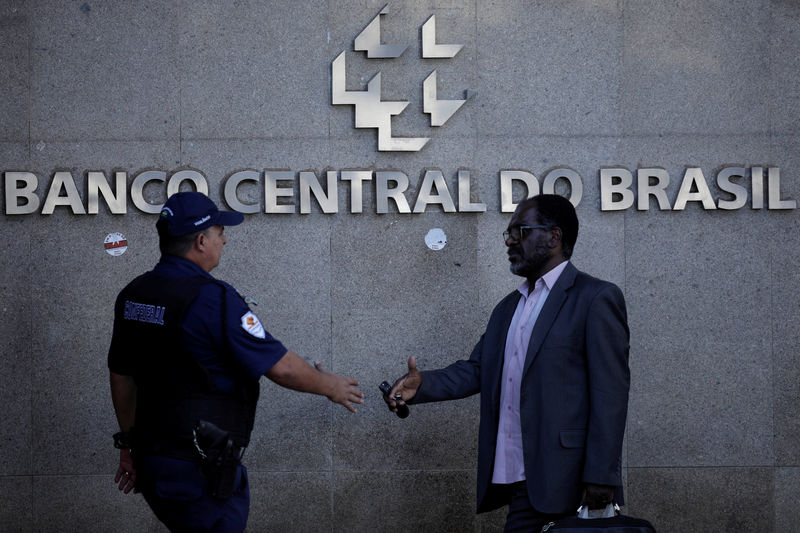(Bloomberg) -- Explore what’s moving the global economy in the new season of the Stephanomics podcast. Subscribe via Pocket Cast or iTunes.
Brazil cut its benchmark interest rate by half a percentage point and indicated another cut of the same magnitude is in the pipeline as inflation expectations fall further below target and the currency bounces back.
The bank’s board, led by its President Roberto Campos Neto, on Wednesday lowered the Selic rate to 5%, as expected by all 48 economists in a Bloomberg survey. It was the third straight reduction of 50 basis points, which came hours after the U.S. Federal Reserve also cut rates.
The central bank’s monetary policy committee “deems that the consolidation of the benign scenario for prospective inflation should permit an additional adjustment of the same magnitude,” policy makers wrote in their post-meeting statement.
Policy makers are boosting stimulus at a time when Latin America’s largest economy is weathering a period of weak growth and subdued price pressures. Annual inflation dove below the 2.75% floor of the official target range earlier this month, and investors have also lowered estimates for cost of living increases next year. Meanwhile, an improved global outlook and stronger real further facilitate monetary easing.
“It was a combination of factors,” Carlos Kawall, chief economist at Banco Safra and a top Selic forecaster in Bloomberg surveys, said before the rate decision. “Lower inflation opened space for continuing key rate cuts. The dollar went up, but then came back down again, and that corroborates the idea that the global outlook is largely favorable.”
Since the central bank’s previous policy meeting in September, Brazil’s real has gained roughly 3.2%, the third best performance among 24 emerging market currencies tracked by Bloomberg. It has been boosted by advances in U.S.-China trade talks and also by growing optimism over the domestic economy.
Last week, Brazil’s Senate gave the final go-ahead to a pension reform that will save government coffers some 800 billion reais ($200 billion) in a decade. Economy Minister Paulo Guedes is expected to introduce a new set of proposals to boost employment and help tame public servant costs.
Read more: Brazil Just Lopped $193 Billion Off Spending But Needs Much More
(Adds detail from central bank statement in third paragraph)
